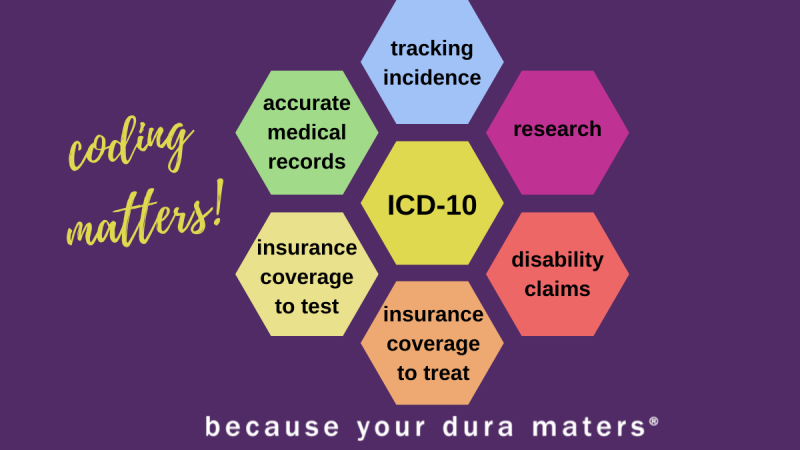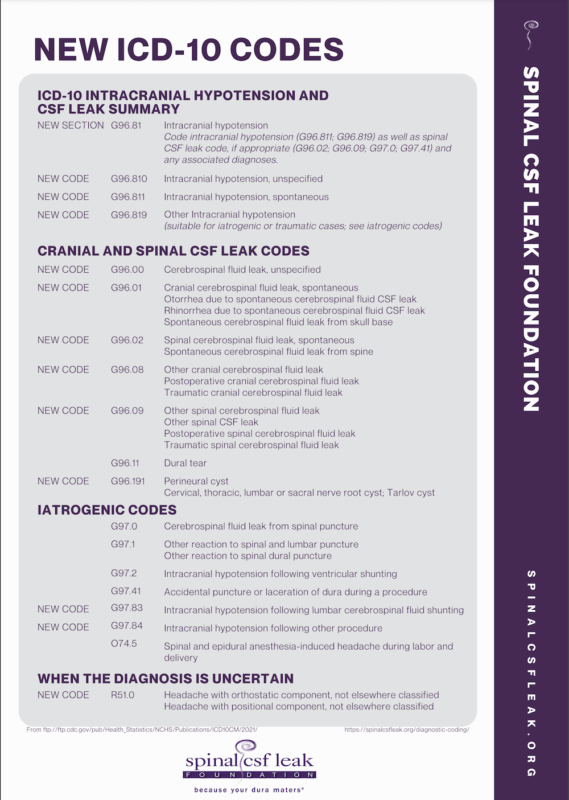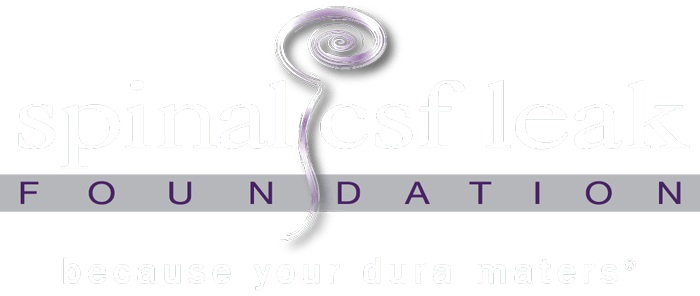ICD-10 diagnostic codes for intracranial hypotension and spinal CSF leak

When health professionals evaluate patients, they assign diagnostic labels with codes to the patient’s medical record. These codes are from the International Classification of Diseases, Tenth Revision, also known as the ICD-10. Every year on October 1, new and revised diagnostic codes are implemented.
How are these used and why are these codes important?
- accuracy of diagnosis in medical records affects patient management
- insurance reimbursement for diagnostic testing and for treatments is linked to ICD-10 coding
- researchers can use these codes to track the incidence and prevalence of each diagnosis and to assist with outcomes research
- hospitals can use these codes to track readmissions and other trends
- accurate coding can influence approval or denial of disability claims
Why does this matter for patients with intracranial hypotension or spinal CSF leak?
In the absence of specific ICD-10 codes, non-specific codes and incorrect codes were previously used for patients with intracranial hypotension and spinal CSF leak. So, the Spinal CSF Leak Foundation medical advisory board organized a team of experts to review the current ICD-10 coding and to submit a proposal for coding revisions. Thanks to this effort, the ICD-10-CM Coordination and Maintenance Committee approved and implemented new and revised codes related to intracranial hypotension and spinal CSF leaks on October 1, 2020 in the United States. We are very grateful to the many physicians and institutions who supported this effort.
The most important NEW codes:
G96.811 Intracranial hypotension, spontaneous
G96.819 Other intracranial hypotension
G96.02 Spinal cerebrospinal fluid leak, spontaneous
G96.09 Other spinal cerebrospinal fluid leak
R51.0 Headache with orthostatic component, not elsewhere classified
the full list of codes:
Click the image to download as a PDF

Key points:
These new coding revisions are having a favorable impact on patient care, insurance reimbursement, and research. This is very important for any disease, probably more so for an under-diagnosed disorder, as we try to track the incidence and prevalence of intracranial hypotension and perform more outcomes research.
Note: The ICD-10 is copyrighted by the World Health Organization (WHO), which owns and publishes the classification. WHO has authorized the development of an adaptation of ICD-10 for use in the United States for U.S. government purposes. As agreed, all modifications to the ICD-10 must conform to WHO conventions for the ICD. ICD-10-CM was developed following a thorough evaluation by a Technical Advisory Panel and extensive additional consultation with physician groups, clinical coders, and others to assure clinical accuracy and utility. The ICD-10 Coordination and Maintenance Committee is a Federal interdepartmental committee. Responsibility for maintenance of the ICD-10 in the USA is shared between two agencies, the National Center for Health Statistics (NCHS) and one from the Centers for Medicare and Medicaid Services (CMS).

